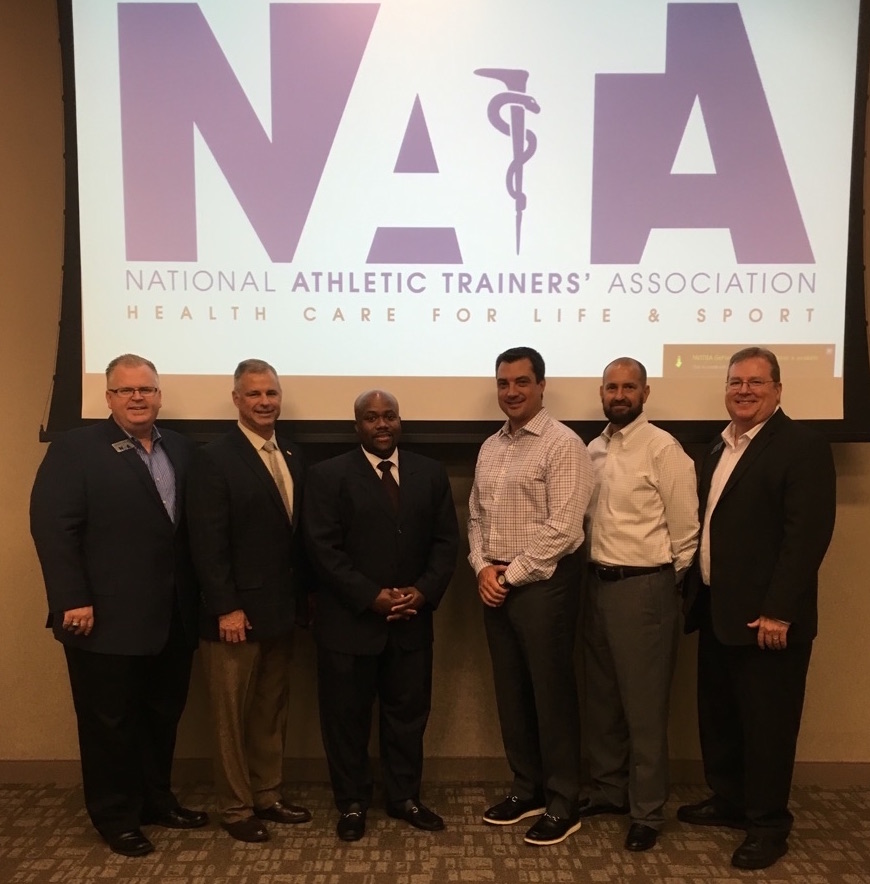PBATS President Mark O’Neal recently attended the first annual NATA Professional Society Meeting. The meeting, held at the NATA office in Carrollton, TX, was the first ever gathering of all four athletic training society presidents from the four major professional sports leagues. O’Neal was joined by PHATS (National Hockey League) President Chris Kingsley of the Los Angeles Kings, PFATS (National Football League) President Rick Burkholder of the Kansas City Chiefs and NBATA (National Basketball Association) Chairman Kevin Johnson of the Philadelphia 76ers.
The group gathered to discuss numerous topics in the athletic training profession, including the status of the profession in all four major sports, ideas as to how to establish and build relationships between athletic trainers of all sports, best practices for athletes with regard to warm ups, stretching and treatment and the overall similarities and differences in the profession in different professional sports.
Another key topic at the roundtable meeting was internships. The PBATS internship has been wildly successful in breeding a core group of current Major League Baseball athletic trainers. This holds true for the other three major professional sports as well. The group of O’Neal, Kingsley, Burkholder and Johnson discussed the impact that athletic training internships have on the profession and the overall progression of learning and education in athletic training.
About the success of the internship programs, O’Neal said, “Simply put, the majority of the teams in all four major professional sports leagues are looking to hire full-time athletic trainers with internship experience obtained through the athletic training societies. Essentially, we all want to ensure that interns get great experience dealing with players, because at the end of the day, that’s hugely important to the success of an athletic trainer. Obviously education and training is important, but the personal interaction with professional athletes is a key factor in doing the best job possible as an athletic trainer.”
The four athletic training societies hope to continue to build and strengthen relationships with NATA personnel and leadership, all while working together to benefit the athletic training profession as a whole and provide the educational material and resources that both current and future athletic trainers need to be the best in their league.

